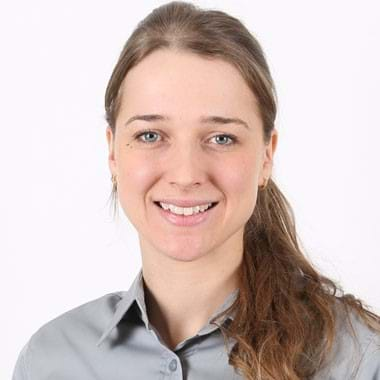
Richard Hogue
Researcher, Ph.D.
418 643-2380
ext 420
About
Richard Hogue (Ph.D.) holds a bachelor's degree in biology from Université de Sherbrooke and a master's degree and doctorate in plant biology from Université Laval. He was hired by Ministère de l’Agriculture, des Pêcheries et de l’Alimentation du Québec in 1986, and joined the IRDA research team in 1998. Richard is passionate about microbial ecology, and heads up LEM (the microbial ecology laboratory) at IRDA, where he has developed in-house expertise methods for detecting and identifying pathogenic and beneficial microorganisms. He also works on the characterization of microbial indicators of agricultural soil health in the context of crop production and protection. He collaborates on projects dealing with the production of green energy from biomass conversion and the development of biological treatment systems for managing air and water quality. He also directs LAB (the biological analysis laboratory), which the Canadian Food Inspection Agency has approved for detecting 10 seed potato pathogenic agents (bacteria, viruses, and viroids).
Area(s) of Expertise
- Phytopathology of potatoes, berries, and field crops
- Microbial ecology of agricultural soils and monitoring of agri-environmental bio-indicators of the microbiological quality of soils and water
Related research project(s)
Developing a soil microbiome monitoring method to select potato crop management practices that reduce soil-borne pathogens and pesticide applications
Method to monitor and control telluric pathogens affecting potatoes that takes into account the interactions between these pathogens and other soil microbiome organisms.
Researchers: Richard Hogue Luc Belzile

Evaluation of the anti-germination, phytotoxic, and biostimulant potential of forest residue extracts
The purpose of the project is to evaluate the anti-germination, phytotoxic, and biostimulant potential of five types of forest residue.
Researcher: Richard Hogue

Developing biostimulants from pyrolytic oils produced from agricultural and forestry biomass
The general goal of the project is to develop biostimulants from oils produced by the rapid pyrolysis of crop and logging residues.
Researchers: Stéphane Godbout Richard Hogue


Maintaining high yields in field crops while reconsidering the option of using glyphosate
The aim of the project is to assess the impact of applying various rates of glyphosate in field crop systems on the soil and crop rhizosphere microbiome.
Researcher: Richard Hogue

Validating microbial indicators of potato field productivity based on metagenomic analysis
The current project is designed to check the predictability of the biological productivity score.
Researcher: Richard Hogue

Detecting spores of Pucciniastrum geopertianum, the fungus that causes blueberry witches’ broom rust
The aim of the project was to determine whether the witches’ broom symptom on blueberries is really caused by the rust Pucciniastrum geopertianum, which attacks balsam.
Researcher: Richard Hogue

Publications
Research report • Christine Landry, Mylène Marchand-Roy, Caroline Côté, Stéphane Godbout, Luc Belzile, Richard Hogue
Landry, C., M. Marchand-Roy, C. Côté, S. Godbout, L. Belzile, R. Hogue, D. Cinq-Mars. 2017. Rapport de recherche - Évaluation du potentiel de valorisation de résidus granulés de pommes de terre à la ferme pour les filières fertilisation, alimentation animale et énergie. IRDA. 109 p. Assessing the potential of using granulated potato residues to produce animal feed, fertilizers, and energy DownloadResearch report • Christine Landry, Mylène Marchand-Roy, Caroline Côté, Stéphane Godbout, Luc Belzile, Richard Hogue
Landry, C., M. Marchand-Roy, C. Côté, S. Godbout, D. Cinq-Mars, L. Belzile, R. Hogue. 2017. Évaluation du potentiel de valorisation de résidus granulés de pommes de terre à la ferme pour les filières alimentation animale, fertilisation et énergie. IRDA. 27 p. Assessing the potential of using granulated potato residues to produce animal feed, fertilizers, and energy DownloadResearch report • Daniel Cormier, Annabelle Firlej, Richard Hogue, Gérald Chouinard, Thomas Jeanne, Franz Vanoosthuyse
Cormier, D., A. Firlej, R. Hogue, J.-P. Légaré, J.-F. Landry, G. Chouinard, M. Fréchette, T. Jeanne et F. Vanoosthuyse. 2013. Validation d’un outil moléculaire novateur pour l’identification des lépidoptères ravageurs des cultures. IRDA. 50 pages. DownloadResearch report • Richard Hogue, Thomas Jeanne, Stéphane Godbout
Lemay, S.P., M. Girard, M. Belzile, R. Hogue, C. Duchaine, V. Létourneau, M. Martel, T. Jeanne, J. Feddes, S. Godbout et F. Pouliot. 2012. Un concept innovateur pour traiter l'air émis des bâtiments porcins réduisant l'impact environnemental et favorisant la cohabitation. IRDA. 125 pages. DownloadScientific article • Patrick Brassard, Stéphane Godbout, Joahnn Palacios, Thomas Jeanne, Richard Hogue
Brassard, P., S. Godbout, J. H. Palacios, T. Jeanne, R. Hogue, P. Dubé, L. Limousy, V. Raghavan. 2018. Effect of six engineered biochars on GHG emissions from two agricultural soils: A short-term incubation study. Geoderma. 327(October 2018) 73-84. Pyrolysis of agricultural residues to produce bio-oil having No.2 fuel oil characteristics for greenhouse heating systems DownloadScientific article • Richard Hogue
Guertin, J. F., M. Zitouni, P. Tanguay, R. Hogue, C. Beaulieu. 2018. Detection of Delphinella shoot blight in plantations of balsam fir (Abies balsamea) Christmas trees in Quebec, Canada. Canadian Journal of Plant Pathology. Vol. 40, 2018. 12 p. DOI: 10.1080/07060661.2018.1547791. DownloadScientific article • Annabelle Firlej, Richard Hogue, Gérald Chouinard, Daniel Cormier
Firlej, A., J.-P. Légaré, J.-F. Landry, R. Hogue, G. Chouinard et D. Cormier. 2013. DNA barcoding: an innovative tool to identify internal lepidopterans in apples. IOBC/wprs Bulletin Vol. 91, Working Group, “Integrated Fruit Protection in Fruit Crops.” Proceedings of the 8th International Conference on Integrated Fruit Production at Kusadasi (Turkey), October 7-12, 2012. C. Ioriatti, F.Ö. Altindisli, J. Børve, L.A. Escudero-Colomar, A. Lucchi, F. Molinari (eds.) . p. 269-271. DownloadScientific article • Stéphane Godbout, Richard Hogue
Pelletier, F., C. De Foy, A. Marquis, S. Godbout, R. Hogue, R. Joncas, J-P. Larouche, D. Massé et R. Gagné. 2003. Effets de différents types de béton sur les émissions de gaz et d'odeurs et sur la présence de bactéries dans les bâtiments porcins. Agrosol. 14(1) 53-60. DownloadSee also




